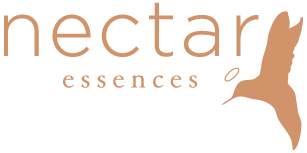clove essential oil

Clove Bud – certified organic essential oil
Scientific Name: Syzygium aromaticum
Family: Myrtaceae
Origin: Madagascar
Products:
breathe me: decongest,immunity, super-immunity
gemfleur: decongest+, immunity+
air & surface spray: super-immunity
Scent:
Hot, fruity, floral, fresh, fragrant, peppery, sweet-spicy, diffusive, powerful, clean, medicinal, oriental.
Key Qualities:
Tonic, stimulating, revitalizing, aphrodisiac, warming, comforting, purifying, active.
Primary Constituents:
Eugenol, Eugenol acetate, Caryophyllene.
Traditional Aromatherapy use:
Clove is one of the most exciting essential oils in the botanical pharmacopeia. It’s anti-oxidant and anti-microbial powers are unparalleled making it both a popular oil for cancer prevention as well as for infection fighting. It is anti-viral, antibiotic and antifungal. If one could only carry one essential oil, it would be a hard fight between lavender augustifola and clove bud. Clove is exceptionally strong and use always be used in low dilution (less than 1%).
Skin care: Acne, athlete’s foot, bruises, burns, cuts, toothache, ulcers, wounds.
Circulation, muscles and joints: Arthritis, rheumatism, sprains.
Digestive system: Colic, dyspepsia, nausea.
Immune system: Colds, flu, minor infections
Safety Considerations:
May cause skin or mucous membrane irritation if undiluted. Avoid use during pregnancy.
Research on Clove (syzygium aromaticum):
In-vitro evaluation of selected Egyptian traditional herbal medicines for treatment of alzheimer disease. (clove bud)
Clove (Syzygium aromaticum L.), a potential chemopreventive agent for lung cancer.
Anticarcinogenic effects of an aqueous infusion of cloves on skin carcinogenesis.
The effect of clove and benzocaine versus placebo as topical anesthetics.
Antimicrobial activity of commercially available essential oils against Streptococcus mutans (clove)
Disclaimer :
These statements made on this website have not been evaluated by the FDA (US Food & Drug Administration). Our products are not intended to diagnose, cure or prevent any disease. If a condition persists, please contact your physician or healthcare provider.
The information provided by his website or this company is not a substitute for a face-to-face consultation with a health care provider, and should not be construed as individual medical advice. The testimonials on this website are from individuals and do not guarantee or imply the same results.
General Safety Information: Do not take any essential oils internally without consultation from a qualified aromatherapy practitioner. (Please note that all Nectar Essences, Breathe Me personal remedies have been diluted for your safety). Do not apply undiluted essential oils, absolutes, CO2s or other concentrated essences onto the skin. If you are pregnant, epileptic, have liver damage, have cancer, or have any other medical problem, use essential oils only under the proper guidance of a qualified aromatherapy practitioner. Use extreme caution when using oils with children and give children only the gentlest of oils at extremely low doses. It is safest to consult a qualified aromatherapy practitioner before using essential oils with children. A skin patch test should be conducted prior to using an essential oil that you’ve never used before. For very in-depth information on essential oils safety issues, read Essential Oil Safety by Robert Tisserand and Tong Balacs.



